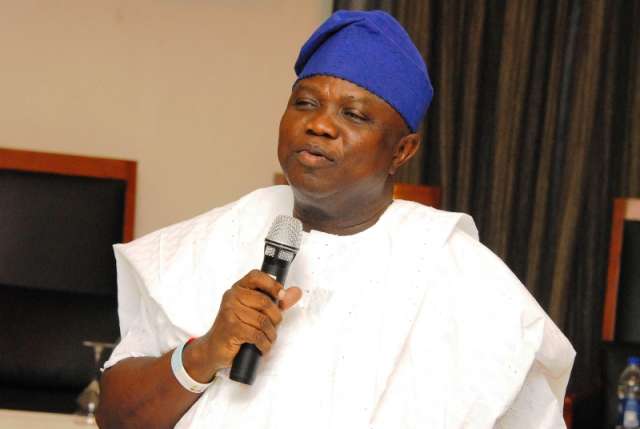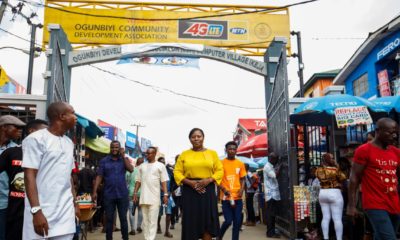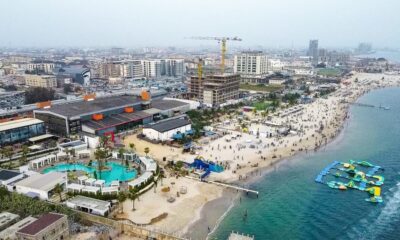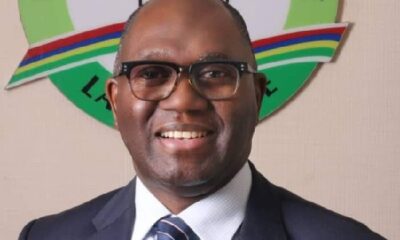- N10bn Accounts Linked to Ambode Frozen by Court
Former governor of Lagos State, Akinwunmi Ambode, has had accounts opened during his administration and credited to the tune of 9.9bn suspended by Justice Chuka Obiozor and investigated by the Economic and Financial Crimes Commission (EFCC).
On Tuesday, the Federal High Court in Lagos ordered the freezing of a trio of bank accounts 0060949275 (Access Bank), 1011691254 (Zenith Bank) and 5617984012 (First City Monument Bank) believed to belong to the Lagos State Government in connection with a suspected N9.9bn fraud.
The EFCC, who filed an ex parte application, requested that the judge freeze the accounts until the ongoing investigations and possible prosecution of the Permanent Secretary in the Office of the Chief of Staff to the Governor of Lagos State, Adewale Adesanya, for money laundering are concluded.
A member of the EFCC investigating team, Kungmi Daniel, disclosed that the commission discovered a huge inflow in excess of N9.9bn from the state accounts into an account domiciled in FCMB opened on September 17, 2018 during Ambode’s administration and operated by Adesanya. Daniel surmised that the timeline of the account shows fraudulent activities and transfers by Adesanya and other signatories from the Lagos State Government to the stated accounts.
“The trend in the account is that the account always witnessed a huge inflow from Lagos State Government into the above scheduled accounts managed by the respondent (Adesanya),” he said.
The EFCC, who swung into action after noticing this pattern and deemed it worthy of investigation said,
“There have been concerted efforts and attempts to dissipate the contents of the accounts listed in the schedule to this application. Without freezing the nominated accounts and temporarily forfeiting the money to the Government of the Federal Republic of Nigeria, there’s no way the fraud being perpetuated using the scheduled accounts can be stopped”
Justice Obiozor, after listening to the case made by the lawyer for the EFCC, granted their requests and adjourned further proceedings one the case to September 9th, 2019.
A source, however, has denied Ambode’s involvement with the accounts.
“It is a mischief. The bank accounts are not the former governor’s personal bank accounts; they belong to the Lagos State Government and were used by previous and present administrations for state administration purposes,” the source said.
Efforts to reach the press crew of the former governor concerning the allegations, at this time have proved futile.

 Forex2 weeks ago
Forex2 weeks ago


 Naira2 weeks ago
Naira2 weeks ago
 Billionaire Watch2 weeks ago
Billionaire Watch2 weeks ago




 Naira2 weeks ago
Naira2 weeks ago




 Naira2 weeks ago
Naira2 weeks ago




 Naira4 weeks ago
Naira4 weeks ago


 Naira6 days ago
Naira6 days ago
 Banking Sector4 weeks ago
Banking Sector4 weeks ago






















